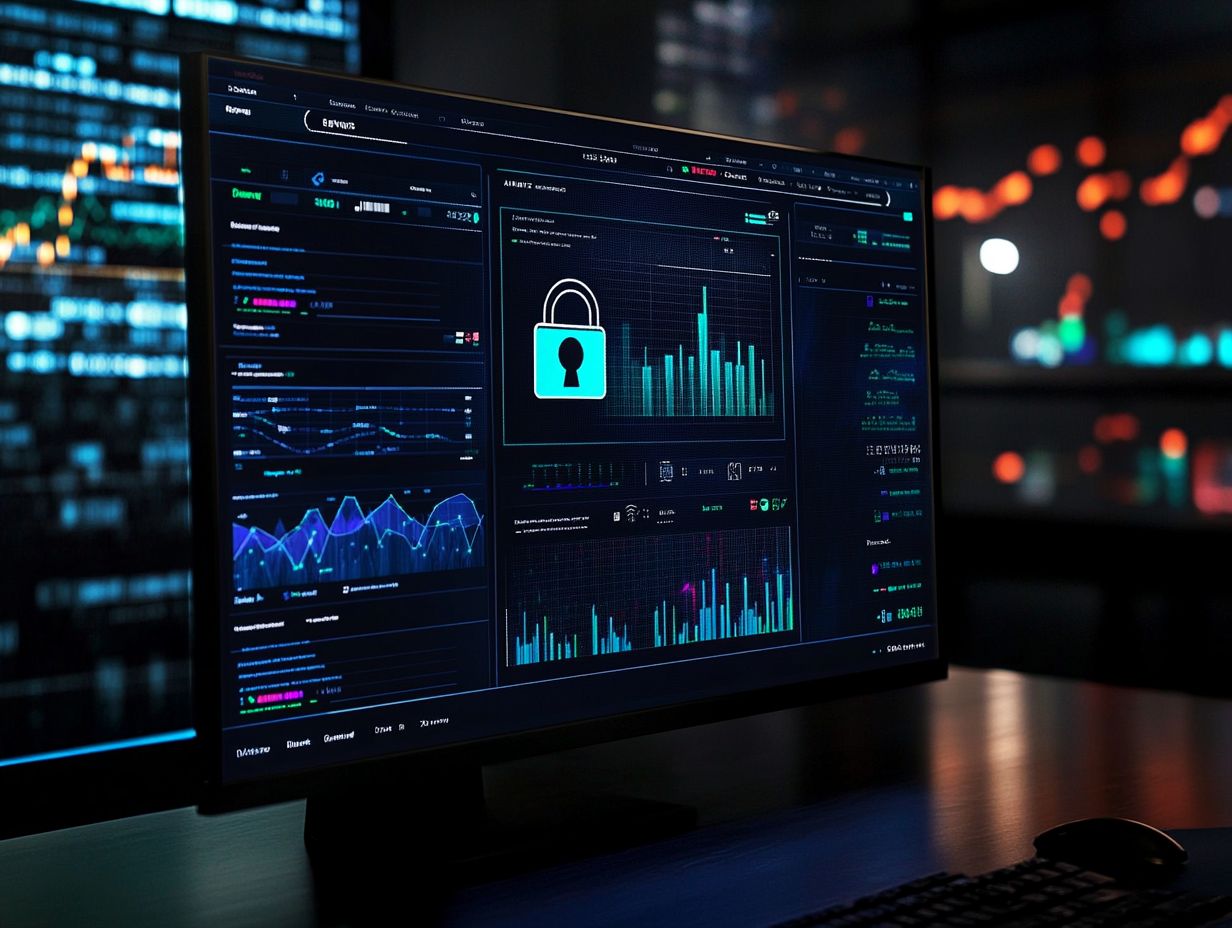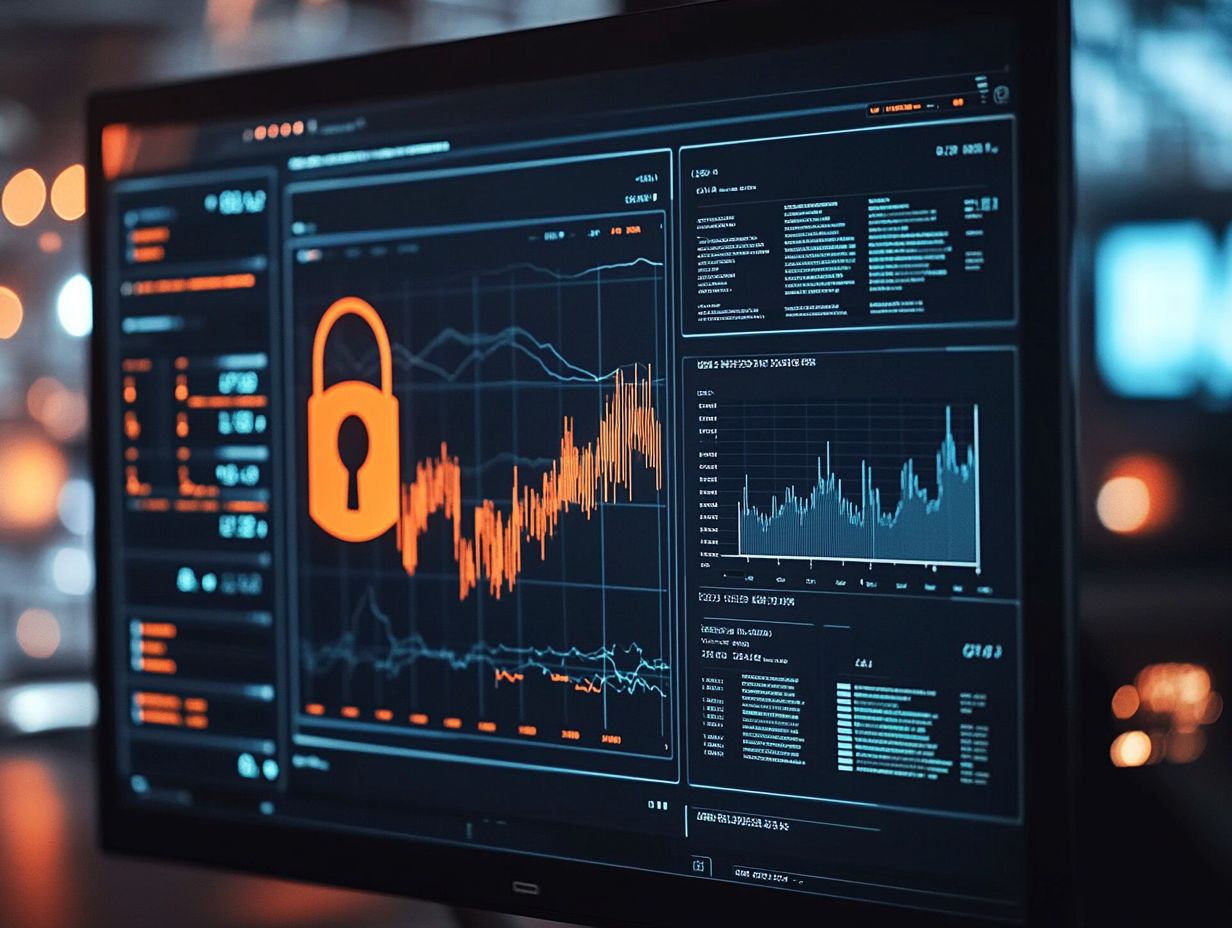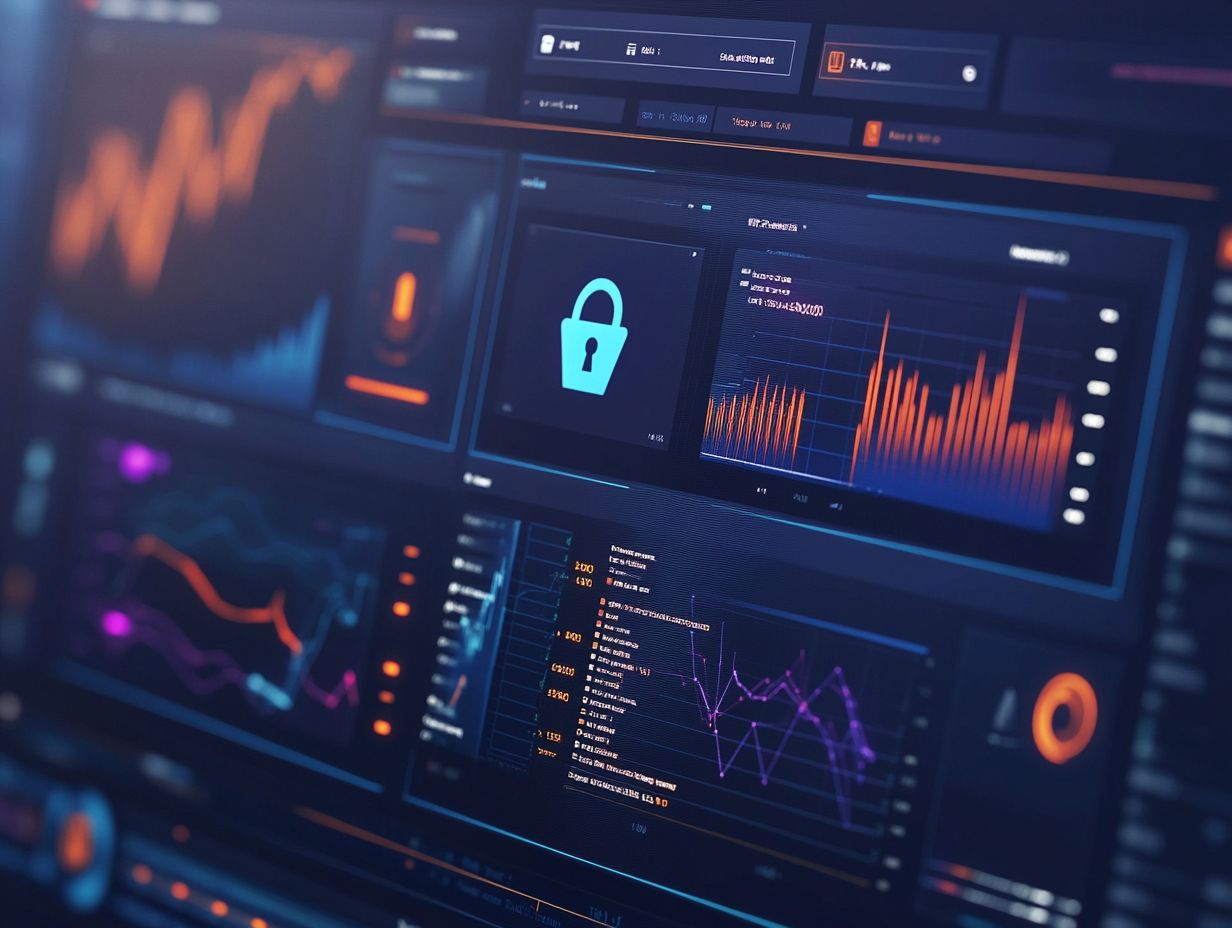what is the impact of gdpr on cybersecurity?
In today s digital landscape, where data breaches are alarmingly prevalent, grasping the nuances of the General Data Protection Regulation (GDPR) is essential for anyone invested in cybersecurity.
Let s dive into how GDPR is reshaping cybersecurity. It emphasizes the key changes and compliance obligations introduced by GDPR. This article examines the ways these regulations impact the threat of data breaches, the challenges cybersecurity professionals encounter, and the best practices for ensuring compliance.
Arm yourself with insights that are vital for navigating this complex regulatory environment.
Contents
- Key Takeaways:
- Why GDPR is Relevant to Cybersecurity
- Key Changes and Requirements under GDPR
- Impact of GDPR on Cybersecurity
- Ensuring Compliance with GDPR and Cybersecurity
- Frequently Asked Questions
- What is the impact of GDPR on cybersecurity?
- How does GDPR affect data breach response?
- What are the consequences of non-compliance with GDPR for cybersecurity?
- Does GDPR have specific cybersecurity requirements?
- How does GDPR impact international cybersecurity practices?
- What steps can organizations take to ensure compliance with GDPR for cybersecurity?
Key Takeaways:

- GDPR is a game changer for cybersecurity.
- It mandates strict regulations for personal data handling.
- Organizations face challenges but also opportunities to improve their practices.
GDPR is a game changer in the world of cybersecurity, as it imposes strict regulations and compliance obligations on organizations handling personal data. The impact of GDPR on cybersecurity includes increased protection of personal data, but also challenges and opportunities for cybersecurity professionals to adapt to the new regulations. To ensure compliance with GDPR and protect against cyber attacks, organizations must implement best practices and continually monitor and update their cybersecurity strategies.
Explaining the General Data Protection Regulation
The General Data Protection Regulation (GDPR) is a set of laws established by the European Union to ensure robust personal data protection for EU citizens. In effect since May 25, 2018, GDPR aims to regulate the processing of personal data, granting you greater control over your information while imposing strict penalties for non-compliance.
This regulation addresses the increasing concerns surrounding data breaches and the misuse of information that can identify a person. It emphasizes the importance of transparency, accountability, and data minimization in today s digital landscape, fundamentally reshaping how organizations manage personal data across all sectors.
At the core of GDPR are essential principles guiding data processing activities. One such principle is data minimization, which advocates for collecting only the data necessary for a specific purpose.
This regulation gives you the power with various rights, including the right to access your data, the right to rectification, and the right to erasure, enabling you to manage your personal information more effectively.
Organizations must conduct compliance assessments to ensure adherence to these principles and respect your rights, ultimately fostering a culture of privacy and security in their operations.
Why GDPR is Relevant to Cybersecurity
The significance of GDPR in the realm of cybersecurity is becoming increasingly clear, especially as data protection regulations play a pivotal role in your organizational security strategies.
These strategies are designed to safeguard personal and sensitive data from unauthorized access and breaches. In today s digital landscape, where cyber attacks are rampant, adhering to GDPR not only guarantees legal compliance but also bolsters your overall cybersecurity posture.
Organizations like yours are mandated to adopt suitable security measures both technical and organizational to ensure the effective protection of personal data.
Understanding the Connection between Data Protection and Cybersecurity
The connection between data protection and cybersecurity is crucial for you as you strive to maintain the integrity and confidentiality of personal data. Both elements are vital components of a comprehensive risk management strategy.
Data protection is all about safeguarding personal data from unauthorized access and processing, while cybersecurity encompasses the technologies and processes designed to defend against cyber threats. Together, they create a robust framework that helps you mitigate the risks associated with data breaches and enhance your overall data security posture.
Adopting an integrated approach that combines these two disciplines is essential, especially since vulnerabilities in one area can lead to serious consequences for the other. For instance, without effective identity access management practices, unauthorized users might gain access to sensitive information, leaving it exposed to cyberattacks.
Likewise, managing insider risks is paramount, as your own employees can pose a significant threat if they mishandle data or fall victim to social engineering tactics.
A coherent strategy ensures that your data protection and cybersecurity efforts work in harmony, thereby strengthening your organization’s defenses against potential breaches and cultivating a culture of security awareness among your employees.
Act now to ensure your organization complies with GDPR!
Key Changes and Requirements under GDPR

Since its implementation, GDPR has ushered in transformative changes and compliance obligations. These changes elevate data protection rights for individuals within the EU.
You now operate in a landscape where Data Subjects have greater control over their personal information. Explicit consent is required for any data processing activities.
There are also strict reporting requirements for data breaches. Organizations like yours are held accountable to data protection authorities, which monitor compliance and impose penalties for violations.
This framework creates a transparent and responsible data environment that prioritizes privacy.
New Regulations and Compliance Obligations
The new regulations under GDPR impose strict compliance obligations. These changes transform the landscape of data privacy.
You must implement strong encryption methods and data security measures to protect sensitive personal data from unauthorized access and cyberattacks.
This reinforces the principle of least privilege, ensuring that only authorized personnel can access critical information.
You are required to maintain detailed records of your data processing activities. This showcases accountability and transparency in handling personal information.
If you manage a multinational corporation, it s not enough to encrypt customer data. Regular audits are essential to ensure compliance across your operations.
Implementing Data Protection Impact Assessments (DPIAs) is essential, especially for projects involving large-scale processing of sensitive data.
A prime example is when a well-known tech company revamped its user consent mechanisms. This ensured that users are fully informed and can exert greater control over their data, embodying the spirit of GDPR.
Impact of GDPR on Cybersecurity
The impact of GDPR on cybersecurity is significant. You must elevate your security measures to meet the stringent demands of the regulation, which directly influences your operational frameworks.
With increased scrutiny on data breaches and the penalties for non-compliance, you need to develop comprehensive incident response plans. These plans actively mitigate risks and protect personal data against cyber threats, fostering a culture of accountability and security within your organization.
Effects on Data Breaches and Cyber Attacks
GDPR raises the stakes for you and your organization in the face of data breaches and cyberattacks. Clear legal responsibilities for protecting personal data are established.
You must report any data breaches to the relevant data protection authority within 72 hours. The consequences of failing to comply can be severe, including substantial fines and reputational damage. This means data security is no longer just a technical issue; it s a vital part of your business!
Non-compliance can lead to fines of up to 20 million or 4% of your annual global turnover whichever is higher. This highlights the financial risks that could await your organization.
For example, the notorious British Airways data breach in 2018 impacted around 500,000 customers. It resulted in a proposed fine of 183 million under GDPR, illustrating the seriousness of these penalties.
The reputational damage from such breaches can leave lasting scars. This can erode consumer trust and diminish your market share. Thus, the implications of GDPR extend far beyond mere regulatory compliance; they underscore the urgent need for robust cybersecurity measures in our evolving digital landscape.
Act now to ensure you re compliant and protect your business!
Challenges and Opportunities for Cybersecurity Professionals

As a cybersecurity professional, the arrival of the General Data Protection Regulation (GDPR) brings a mix of challenges and opportunities. You must navigate the complex landscape of compliance while strengthening your organization’s security posture.
The evolving data protection obligations demand continuous education and training. You need to stay informed about regulations, technologies, and best practices to manage risks related to data breaches effectively.
This often requires a significant investment of time and resources into regular assessments of your current cybersecurity protocols. It’s essential to ensure they align with the stringent requirements set forth by GDPR. The constant shift in compliance requirements heightens the pressure, as any misstep could lead to severe financial penalties and reputational harm.
However, this challenging environment also presents opportunities for those with specialized skills. The market increasingly needs experts who can navigate compliance complexities and implement robust data protection measures. This offers fertile ground for growth and innovation in cybersecurity roles.
Ensuring Compliance with GDPR and Cybersecurity
Ensuring compliance with GDPR while maintaining strong cybersecurity measures is crucial for organizations committed to protecting personal data and avoiding penalties.
To achieve this, embrace best practices that create a comprehensive data protection framework. This framework should provide clear guidelines on data processing activities, security measures, and risk management strategies, fostering a culture of accountability and transparency.
Best Practices for Meeting Requirements and Protecting Data
Implementing best practices to meet GDPR requirements is vital for organizations aiming to protect data and minimize risks associated with data breaches. Establish strong data security measures. Create a solid incident response plan and conduct regular audits to comply with data protection laws.
This approach not only safeguards personal data but also builds trust among data subjects.
To achieve these objectives, invest in advanced encryption techniques to secure sensitive information. This ensures that even if data is intercepted, it remains unreadable. Developing a comprehensive incident response plan enables your business to swiftly address and contain potential data breaches, minimizing damage and ensuring operational continuity.
Regular compliance audits serve a dual purpose. They evaluate your adherence to regulations while also helping identify vulnerabilities.
For instance, a renowned tech company faced a data breach. By following best practices, they recovered quickly, maintained transparency, and implemented enhanced security measures. This illustrates the practical importance of these strategies in real-world scenarios.
Final Thoughts on the Impact of GDPR on Cybersecurity
The impact of GDPR on cybersecurity has been transformative, urging you to rethink your data protection strategies and prioritize compliance to mitigate legal risks associated with data breaches. This regulation has raised awareness about data security and fostered a culture where cybersecurity is a collective responsibility, strengthening your organization s resilience against cyber threats.
As you navigate this evolving landscape, you’ll face ongoing challenges. Integrating advanced security measures, training personnel, and managing third-party risks will be essential. Your data protection strategies must evolve proactively, emphasizing not just compliance but also the importance of a security-focused culture throughout your organization.
Looking ahead, the implications are significant. Organizations that adapt effectively will meet regulatory requirements and safeguard their reputations while maintaining consumer trust in an increasingly digital world.
Frequently Asked Questions

What is the impact of GDPR on cybersecurity?
The General Data Protection Regulation (GDPR) protects personal data and privacy for EU citizens. It significantly affects cybersecurity by enforcing strict data handling and protection measures.
How does GDPR affect data breach response?
Organizations must report data breaches to the proper authority within 72 hours. This requirement pushes cybersecurity teams to have solid response plans ready.
What are the consequences of non-compliance with GDPR for cybersecurity?
Not following GDPR can lead to fines up to 20 million or 4% of the company s global revenue, whichever is higher. This can harm both finances and reputation.
Does GDPR have specific cybersecurity requirements?
Yes! GDPR requires data protection to be ingrained in processes and mandates regular security assessments. Organizations must also implement strong security measures for personal data.
How does GDPR impact international cybersecurity practices?
GDPR affects any organization processing EU citizens’ data, even if based outside the EU. This has raised cybersecurity standards worldwide.
What steps can organizations take to ensure compliance with GDPR for cybersecurity?
Organizations can conduct detailed assessments, implement security measures, and regularly train employees on data protection and cybersecurity best practices.






